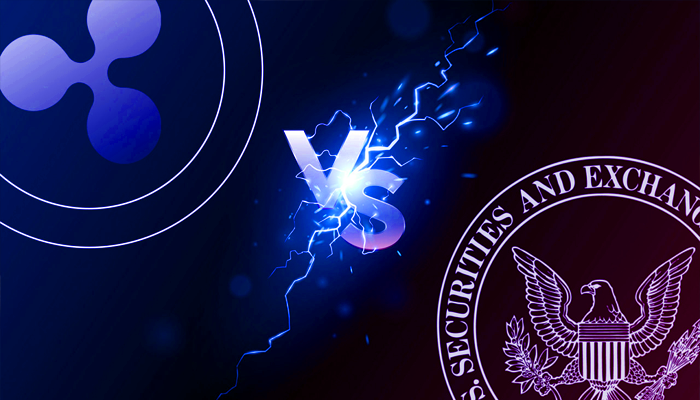The recent legal victory of Ripple Labs over the U.S. Securities and Exchange Commission (SEC) has sent shockwaves through the cryptocurrency industry. This landmark case, which centered around whether XRP, Ripple’s native cryptocurrency, is a security, has significant implications for the broader crypto market, regulatory clarity, and the future of digital assets.
Background: The SEC vs. Ripple Case
The SEC initiated a lawsuit against Ripple Labs in December 2020, alleging that the company conducted an unregistered securities offering by selling XRP tokens. Ripple countered, arguing that XRP is not a security but rather a currency, akin to Bitcoin or Ethereum. The case became a pivotal moment for the industry, as its outcome would potentially set a precedent for how cryptocurrencies are classified in the U.S.
The Court’s Ruling
In November 2024, Ripple achieved a significant legal milestone when the court ruled in its favor. Judge Analisa Torres concluded that XRP, when sold on secondary markets, does not qualify as a security. This decision was based on the Howey Test, a legal framework used to determine whether an asset is an investment contract. According to the ruling:
- Institutional Sales: Ripple’s direct sales of XRP to institutional investors were deemed securities, as they involved expectations of profit based on Ripple’s efforts.
- Secondary Market Sales: XRP transactions on exchanges or through other secondary sales were not considered securities, as buyers did not rely on Ripple’s actions for profit.
Implications of the Ruling
- Impact on Ripple and XRP
The decision is a clear win for Ripple and XRP holders. It validates Ripple’s stance that XRP functions as a utility token rather than an investment vehicle. This ruling has already boosted XRP’s price and trading volumes, with the token seeing a surge in market activity following the announcement
- Precedent for Other Cryptocurrencies
The judgment offers a potential blueprint for how other cryptocurrencies might be evaluated under U.S. law. It differentiates between institutional and retail sales, providing a nuanced approach that could guide future cases involving tokens such as Ethereum and others
- Regulatory Clarity
The case underscores the urgent need for updated regulatory frameworks for digital assets. The court’s decision highlights the inadequacy of applying decades-old securities laws to modern blockchain technologies. Many industry leaders are now calling for comprehensive legislation to provide clarity and foster innovation in the U.S.
Broader Crypto Market Reactions
A Shift in SEC Strategy?
The ruling is seen as a setback for the SEC, which has been criticized for its “regulation by enforcement” approach. Legal experts suggest that this case might force the agency to reconsider its strategy and adopt clearer guidelines for the industry. The incoming pro-crypto administration could further influence this shift, potentially leading to more favorable conditions for blockchain companies
Institutional Adoption and Investment
Ripple’s victory could encourage more institutional adoption of XRP and other cryptocurrencies. Companies previously wary of regulatory uncertainties might now explore opportunities in the digital asset space, fostering growth and innovation.
Challenges Ahead: The SEC’s Appeal
Despite the victory, the battle is not entirely over. The SEC has until January 15, 2025, to file an appeal. Legal analysts suggest that the appeal could hinge on the interpretation of the Howey Test and its application to Ripple’s institutional sales. However, a new, pro-crypto leadership at the SEC might decide to drop the case altogether, signaling a shift in regulatory priorities.
Ripple’s Resilience: A Model for the Industry
Ripple’s handling of the lawsuit demonstrates the importance of resilience and transparency in navigating regulatory challenges. CEO Brad Garlinghouse and the legal team were lauded for their strategic approach, which included garnering support from the XRP community, engaging policymakers, and presenting a robust defense
Future Outlook: Ripple and Beyond
Ripple’s victory marks a turning point not only for the company but for the broader cryptocurrency ecosystem. The case highlights the need for:
- Legislative Action: Policymakers must establish clear rules to define and regulate digital assets.
- Industry Collaboration: Blockchain companies should work collectively to advocate for fair and consistent regulations.
- Investor Education: Increased awareness about the legal and functional aspects of cryptocurrencies will empower retail and institutional investors.
Conclusion
Ripple’s legal triumph over the SEC is more than a win for the company—it is a victory for the entire cryptocurrency industry. It underscores the importance of legal clarity and fair treatment for fostering innovation in the U.S. As the regulatory landscape continues to evolve, Ripple’s case serves as a reminder of the potential for blockchain technology to drive economic transformation while adhering to transparent and fair rules.
